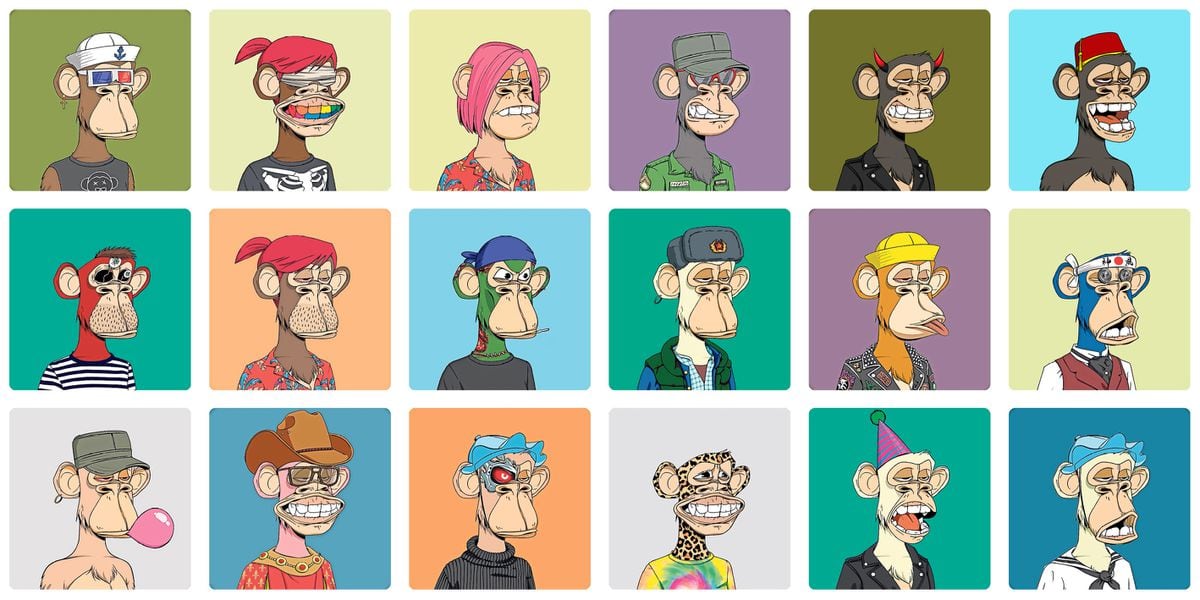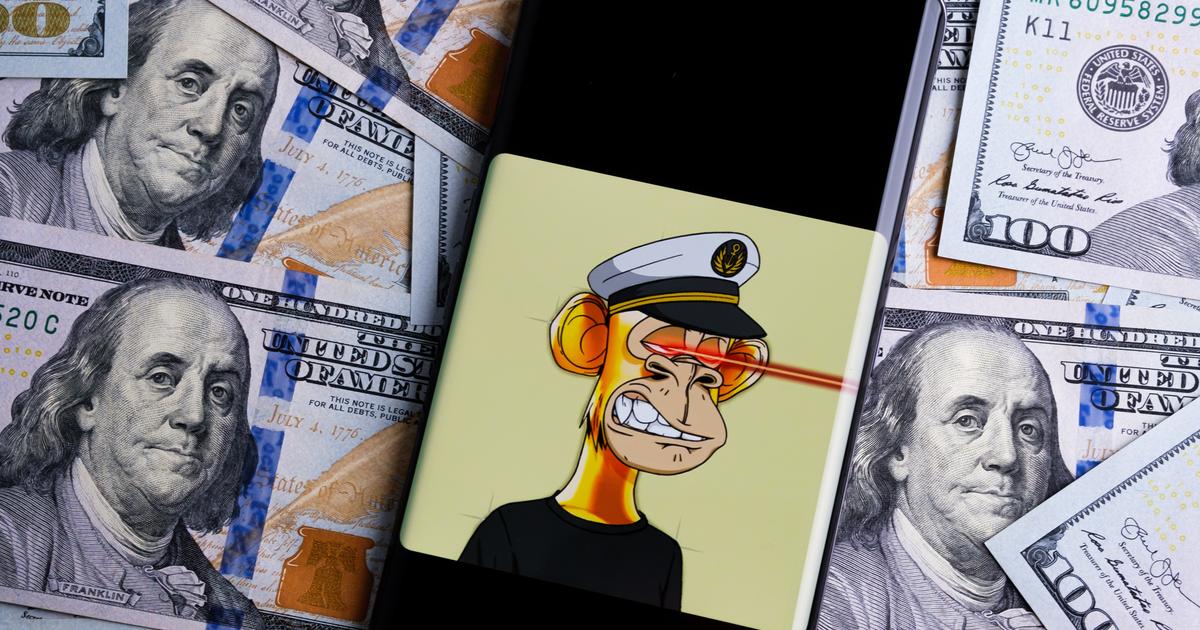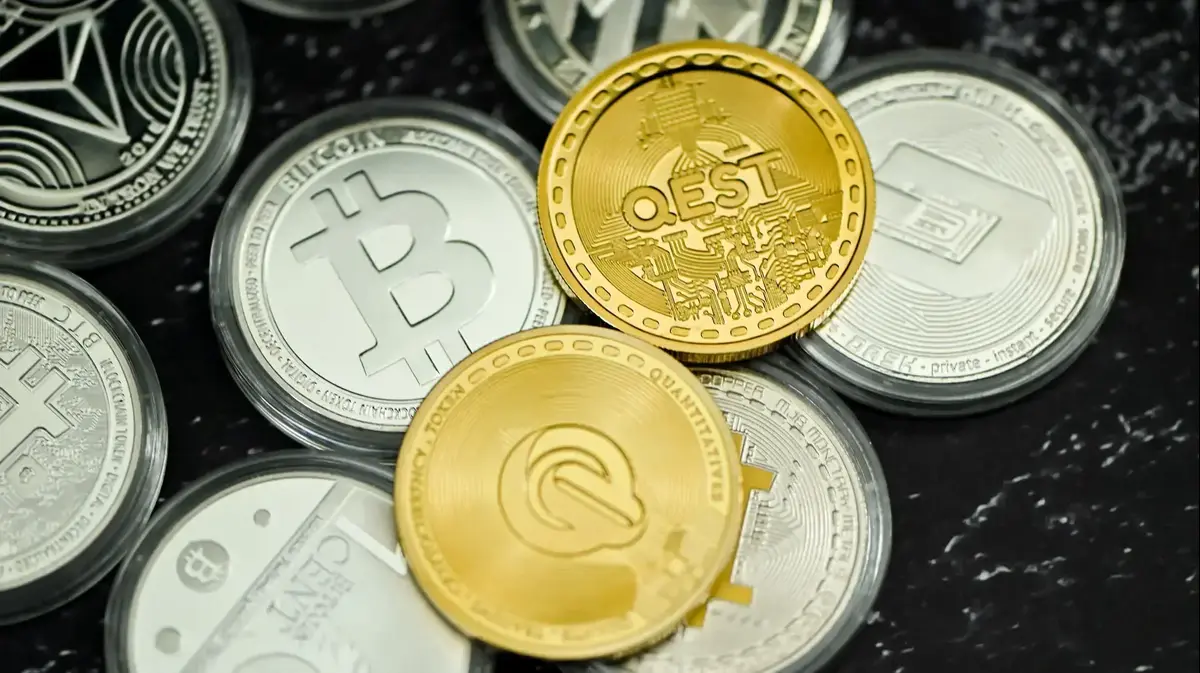This fall I decided to explore the crypto web, to understand the buzz around
blockchain
, cryptocurrencies, and digital scarce goods (NFTs).
I have read skeptics and fans, but above all I have tried to peek into the supposedly revolutionary Web3 community: I bought a fraction of a bitcoin, I opened an Ethereum and a Tezos wallet, I made a profile on bitclout, I chose three cheap NFT and spent an afternoon programming this open source generative box.
I come back with an image: the Web3 caravan reminds me of the settlers of the Wild West. It's a journey to no man's land of people chasing riches or promises; there are scammers, opportunists and tycoons, but there are also smart kids who reinvent the wheel -or the web-, genuine creators, optimists and idealists.
The first thing is to explain what we are talking about. For its defenders, Web3 is the next phase of the Internet, after Web1 (1990-2005; open protocols) and Web2 (2005-2020; closed platforms). The promise is a decentralized internet thanks to the blockchain, the technology that supports all this, cryptocurrencies, smart contracts or NFTs. If I understand it correctly, the essential idea is that the blockchain is a public record without an owner, a database whose writing is managed in a distributed way, and whose integrity is protected cryptographically. It is the place where it says —so that anyone can see it— that a certain amount of bitcoins belongs to a
wallet
that you control;
that you own a digital product;
or that its author has signed a contract that dictates that 10% of its sales will go to an NGO.
If it works as its champions say, the Web3 internet will once again be something decentralized and governed by communities.
In the words of one of them, Chris Dixon: “It is an internet owned by its builders and users”.
But how much truth is there in that vision?
If I am writing about this mess today, it is because I am following the journalist and writer Marta Peirano, who last week published a harsh criticism of this “new faith called Web3″.
It is a useful text that denounces real problems (speculation, tax evasion, CO2 emissions), and it will do well to put many people on guard.
But my vision is neither so resounding nor so negative.
I think Web3 technologies matter and some will work;
and that in the community that drives them, in that Wild West that I was talking about, there are positive elements and interesting stories.
That is why I remain curious and partially optimistic.
Here are my tentative conclusions.
I will be extremely cautious before investing in cryptocurrencies.
Deciding if coins are worth their price is a full-time job.
I have one.
I don't see the advantages of DeFi, decentralized banking.
The other way around: Understanding what it takes to hold your own cryptocurrencies has made me appreciate my bank more!
That boring, regulated entity that assures me that something is mine.
To keep your crypto things you have a twelve word password that is the only thing that gives access to your coins.
What if someone accesses your password?
GameOver
.
If you lose the key?
GameOver
.
It is unacceptable that web3 heats up the planet so much.
An Ethereum transaction consumes 800,000,000 joules of energy, the equivalent of 50 hours of air conditioning. A Bitcoin transaction consumes even more. There are more efficient chains, and Ethereum promises to improve, but it is urgent.
However, I do understand the illusion for a proprietary internet.
Crypto technologies promise to add a layer to the internet that mandates possession. In Dixon's words: "'Tokens' [chips] give users property rights: the ability to own a piece of the internet." Right now it is difficult to own digital things, not only because everything can be copied, but also because it is difficult to know who did what or who owns something. Blockchain technology allows the creation of truly digital goods, as Ezra Klein explained very well in his podcast in
The New York Times .
, “whose existence, uniqueness, ownership, and transaction history can be verified.”
And that offers possibilities: "truly digital ways of owning things of value and buying and selling them to other people."
It sounds abstract, but think of simple applications, like making micropayments instead of giving 'likes', or imagine a novice writer who decides to share the royalties of his first book with his first 1,000 readers.
Is it commodifying the internet?
Yes, but that already happened.
Will it bring decentralization? I doubt it. It is true that one of the things that intermediary platforms do now, such as YouTube or Spotify, is this: they offer a private garden where they guarantee the rights of creators... in exchange for a commission. The optimists of Web3 believe that if they lose that function they will lose power, and that there will be distribution, but at this point I am very, very skeptical - like Ezra Klein or Jack Dorsey - the current intermediaries, or their successors, have other ways to maintain your domain.
I also see the relevance of having identities that travel with you.
Right now, the guarantor of your profile on Facebook or Twitter are two companies. Partly for this reason you do not have a single profile, but a different one in each private garden. Having a unique identity of your own, traveling with you on the internet or into the metaverse, is thought-provoking and unsettling at the same time.
I don't find digital objects laughable.
It's crazy that someone pays millions to be the legitimate owner of a drawing of an ape, but it's not a new crazy thing: people pay to signify belonging and status. Of course whoever buys a Ferrari does, but maybe you do too. If you have an expensive watch or bracelet, it is not because they are better objects than a Casio or a nice and cheap bracelet, it is because you like them to be original (scarce), or because you like what they say about you. How many people do you know who enjoy paying for experiences to share on Instagram? It is understandable.
Paying for digital objects seems even more normal to me.
People like pretty things.
And, to the extent that part of our life is digital, we will want those things digital: if you spend three hours a day in Zoom meetings, with colleagues, clients or family, wouldn't you want a beautiful background from an artist who loves you? like?
The distance between saying "what a beautiful coat" and "what a beautiful avatar" is microscopic, although one phrase seems natural to us and the other eccentric.
"Ganxillo" with 4 branches, 9 branches, 7 and 3.
Press numbers to change them, press space key to clear.
You can view and interact with it at: https://t.co/6yuGiRv26R pic.twitter.com/G9YMkezk9c
– Anna Carreras (@carreras_anna) January 13, 2022
There are people on Web3 doing cool stuff.
An example is the world of generative art: artists who program their creations. They write the mathematical rules, their algorithm, but then chance intervenes to decide how the exact lines of each work will be. You can see examples at Art Blocks or at fxhash. It's a scene with decades of dark history, but one that has seen an explosion in 2021 making its works scarce digital objects, or NFTs, that you can keep, display and resell.
NFT marketing may be in the middle of a bubble.
And it is true that there are generative artists earning a lot of money, like the Catalan Anna Carreras with her hypnotic Trossets, but her surprise is relevant: she did not expect it.
You can answer yes to the question that separates optimists and opportunists: Would they be curious about Web3 without getting rich?
Yes.
Web3 arouses genuine enthusiasm and is —partly— a kid thing, in the best possible way.
It has been pointed out by a skeptic of the movement, Robin Sloan, and I was enlightened to read it: it is just that.
Web3 has resonated with young people perhaps because it seems really new, something that can be yours.
If you are 22 years old, Twitter is old, YouTube already has its creators, and both are commercial and
establishment platforms
.
Where is the next revolution going?
How do you get to the future?
Web3 is unlikely to be the answer to those questions, but it's not uncommon for young people to look for it there.
If you want an example, think of the 19-year-old Spaniard Miguel Piedrafita, who participated in the group of cryptocurrency enthusiasts that raised 45 million dollars… to almost acquire a relic: “Let your friends say: we are going to buy the Constitution from the U.S. And that we almost made it, it's amazing."
You can follow EL PAÍS TECNOLOGÍA on
and
or sign up here to receive our
weekly newsletter
.









